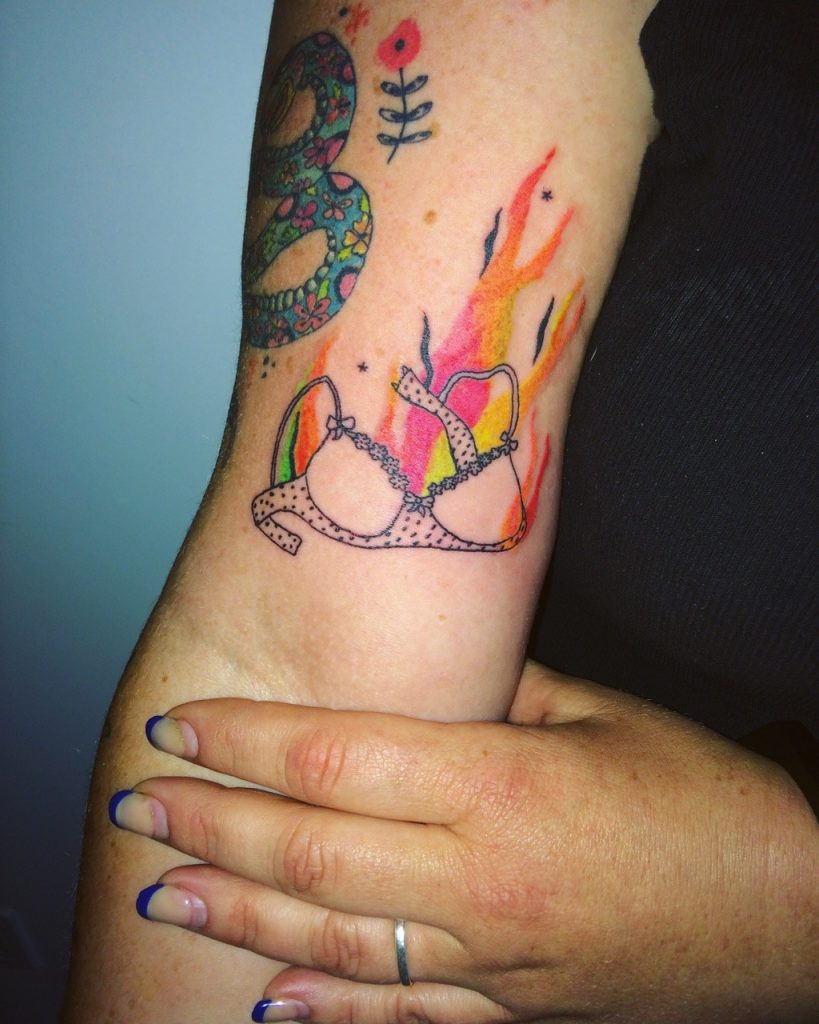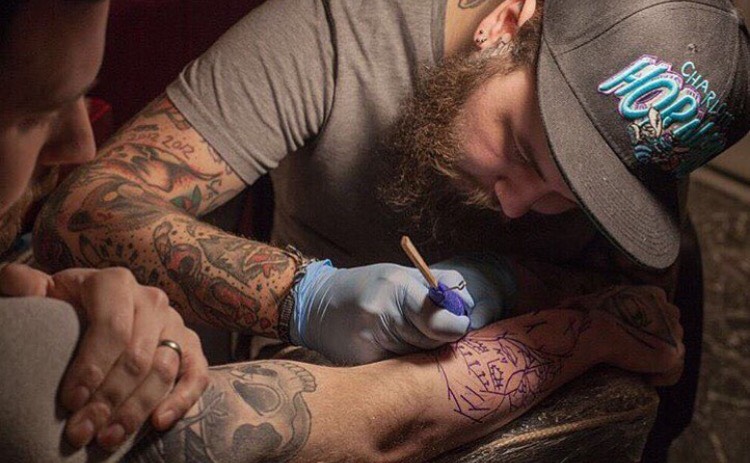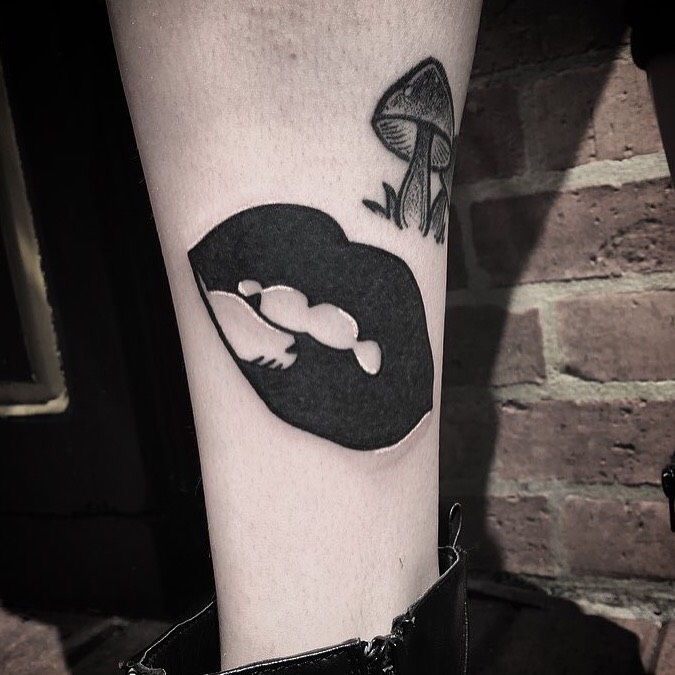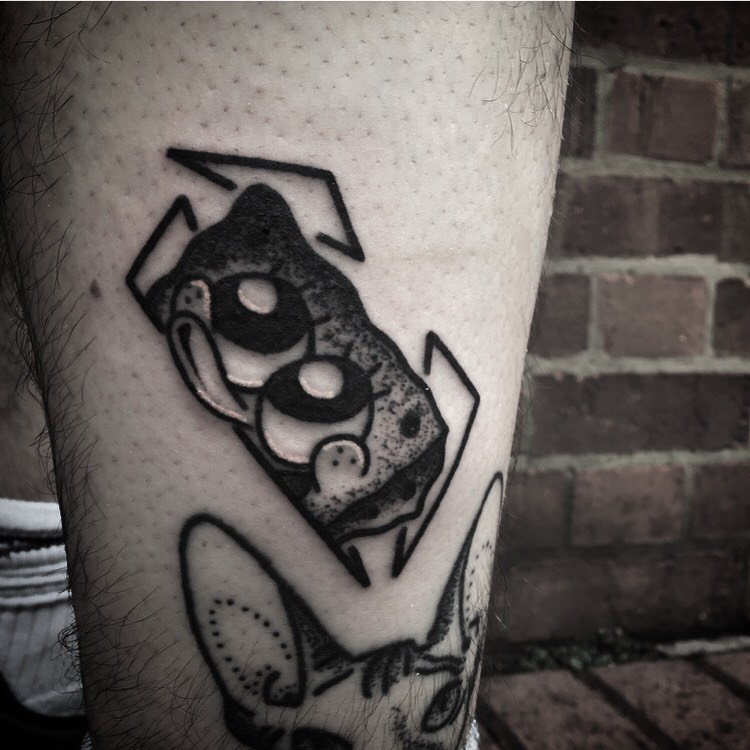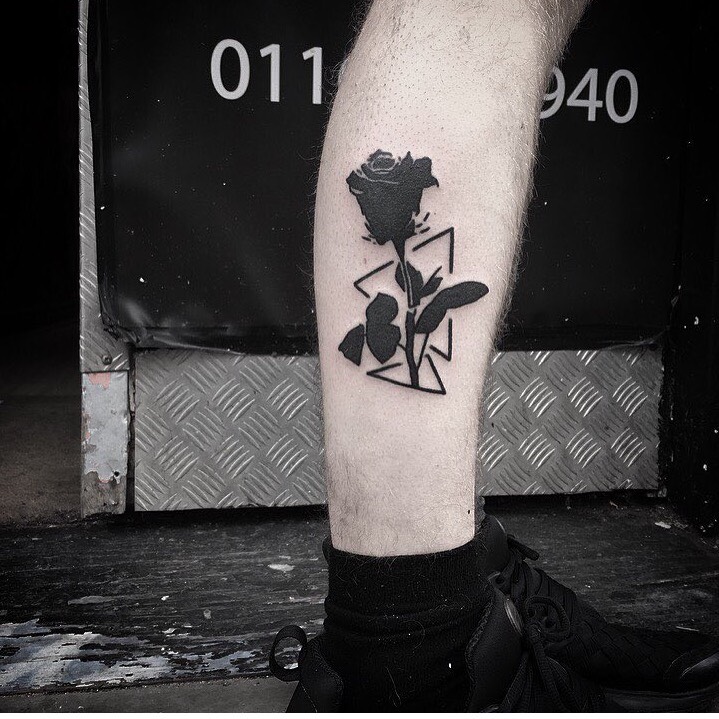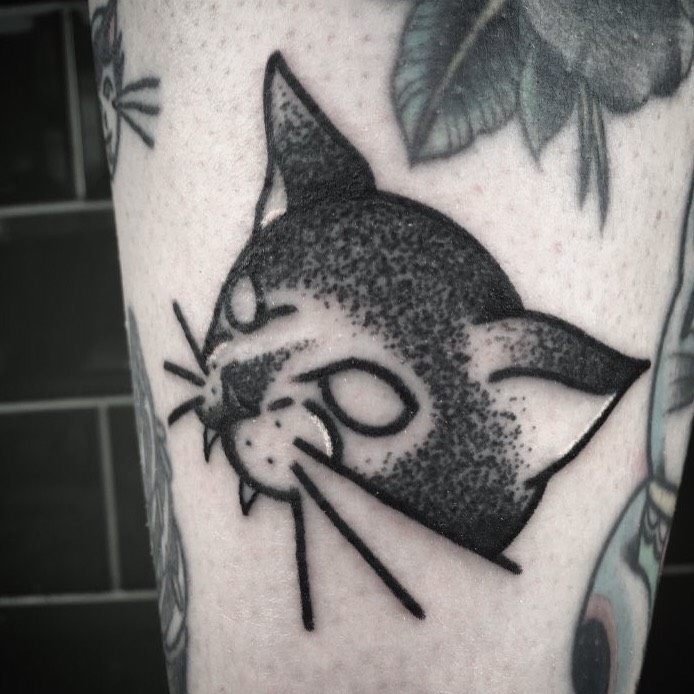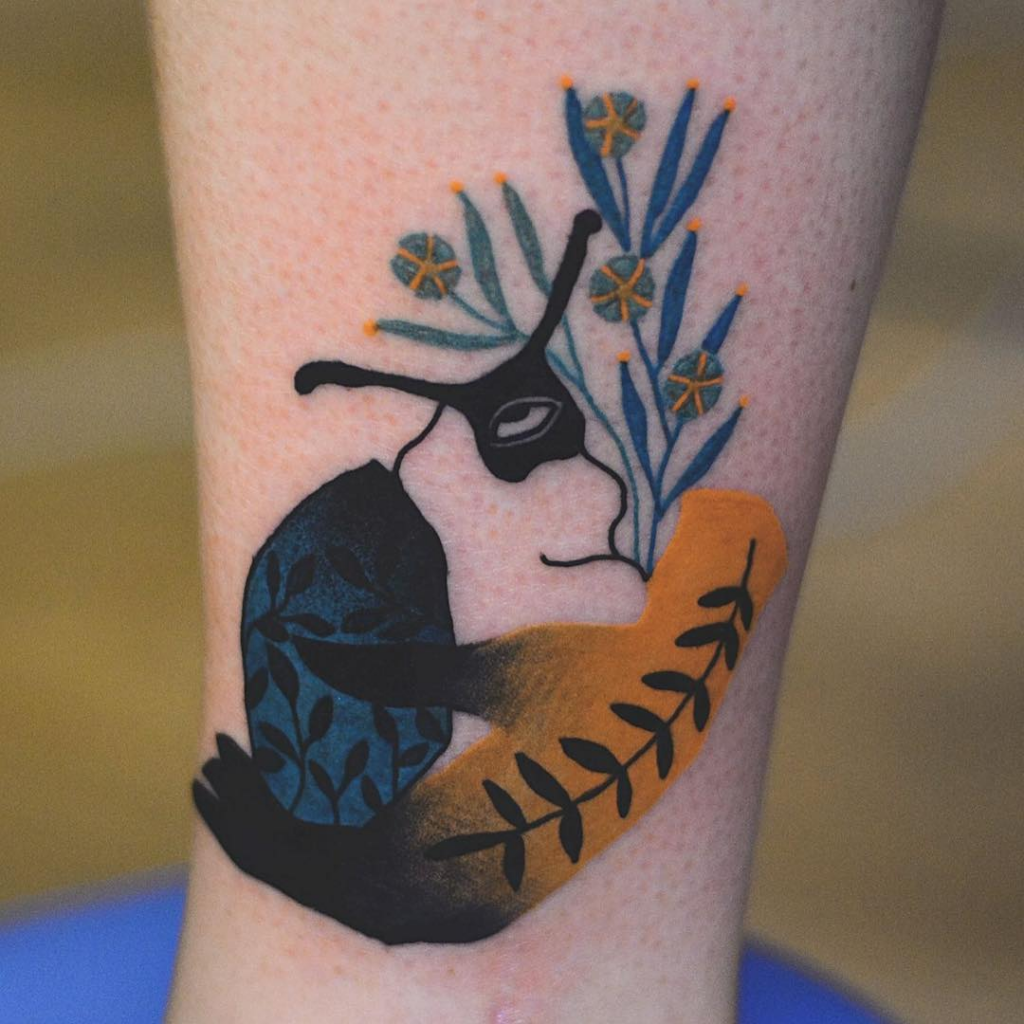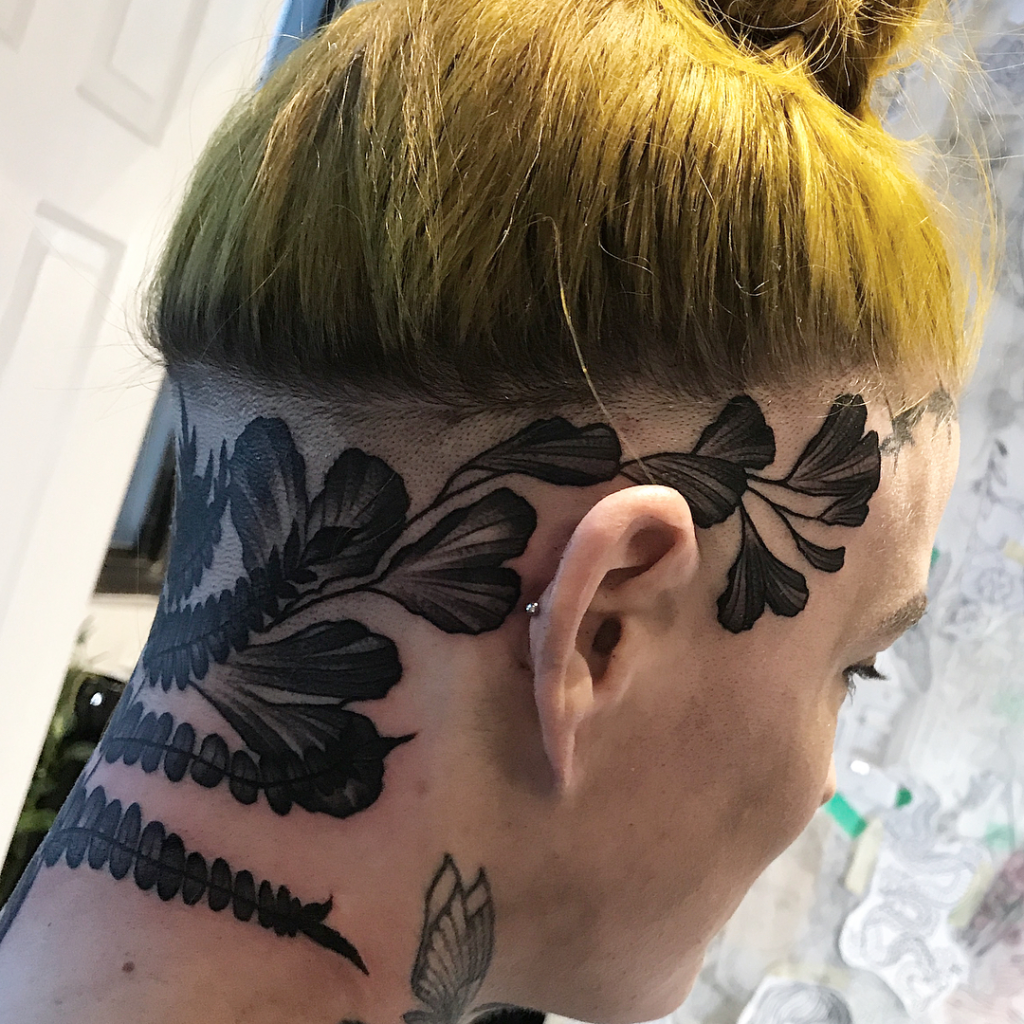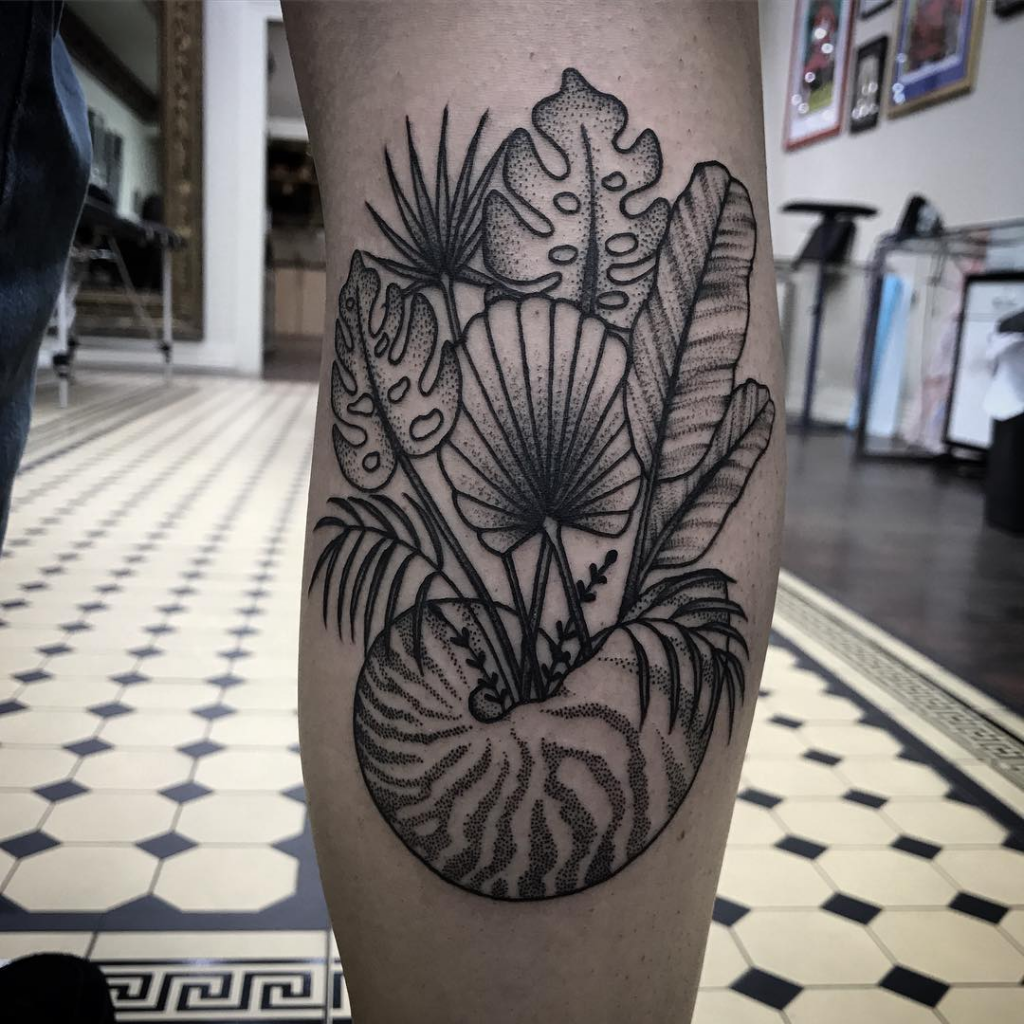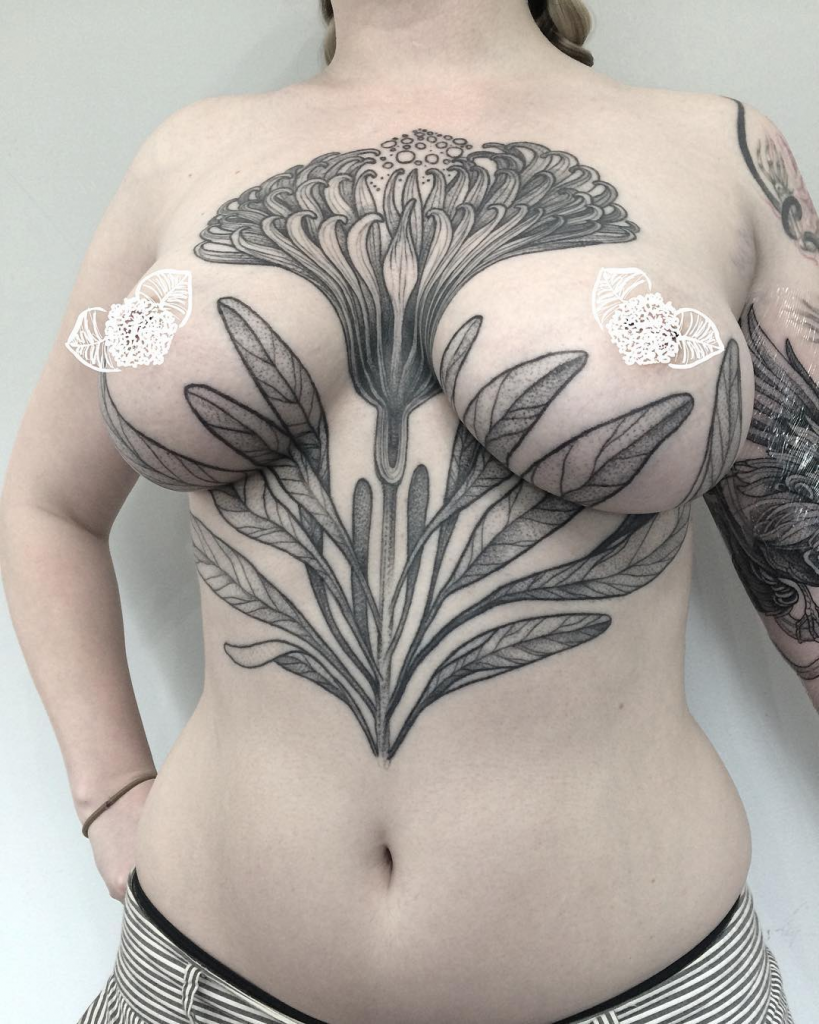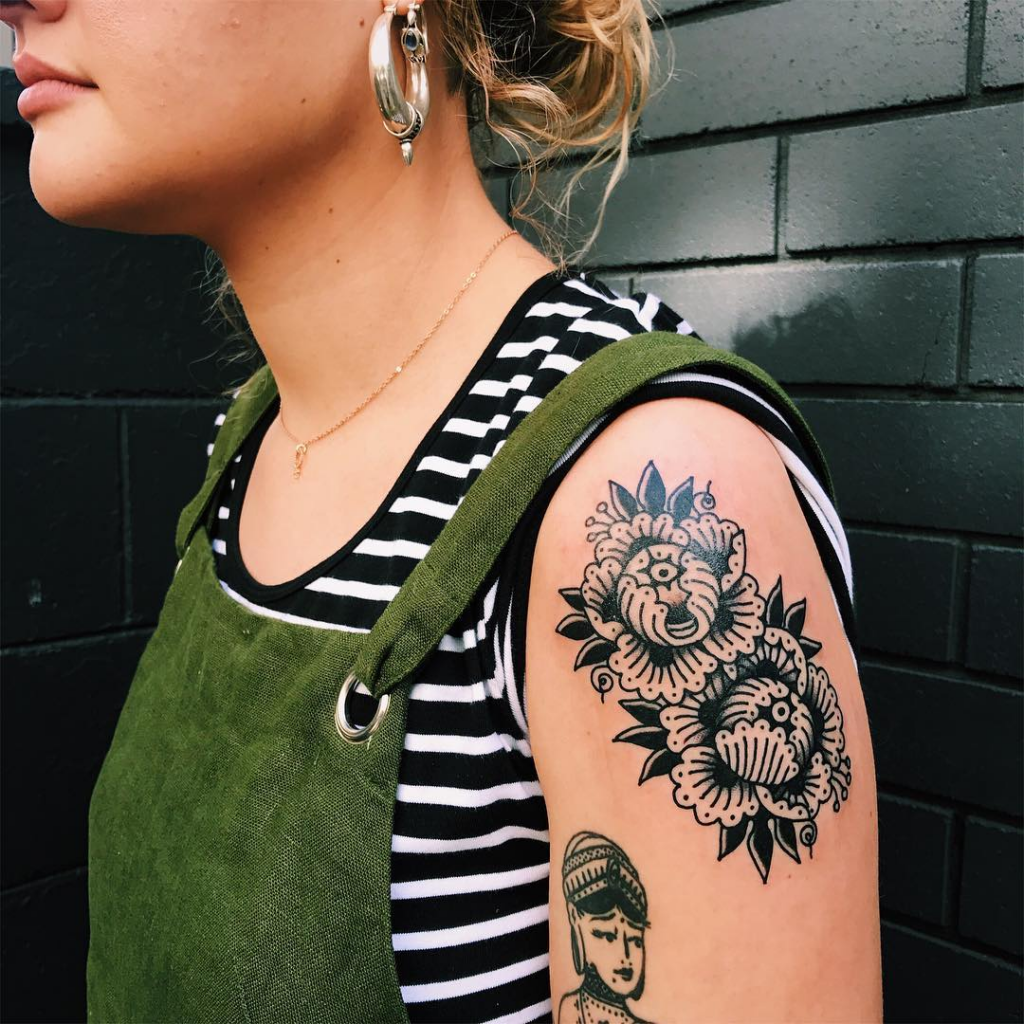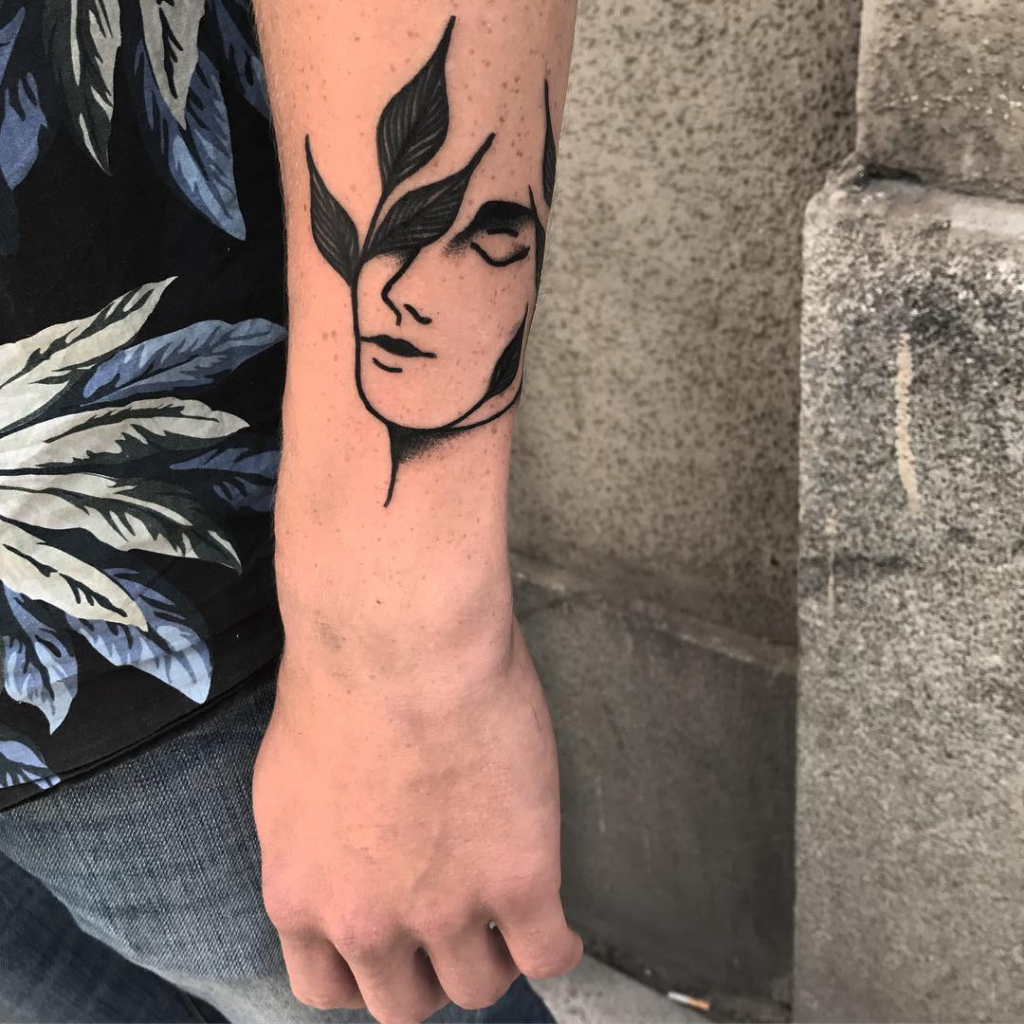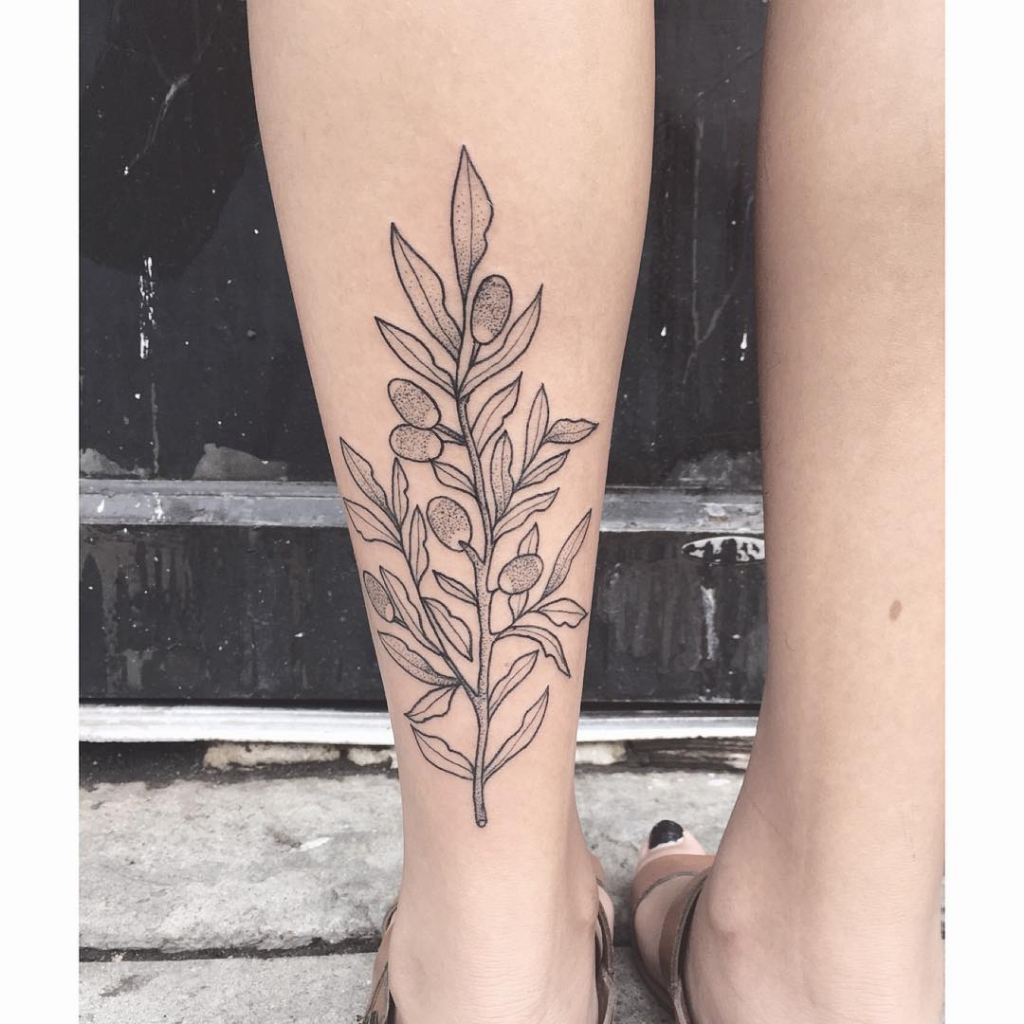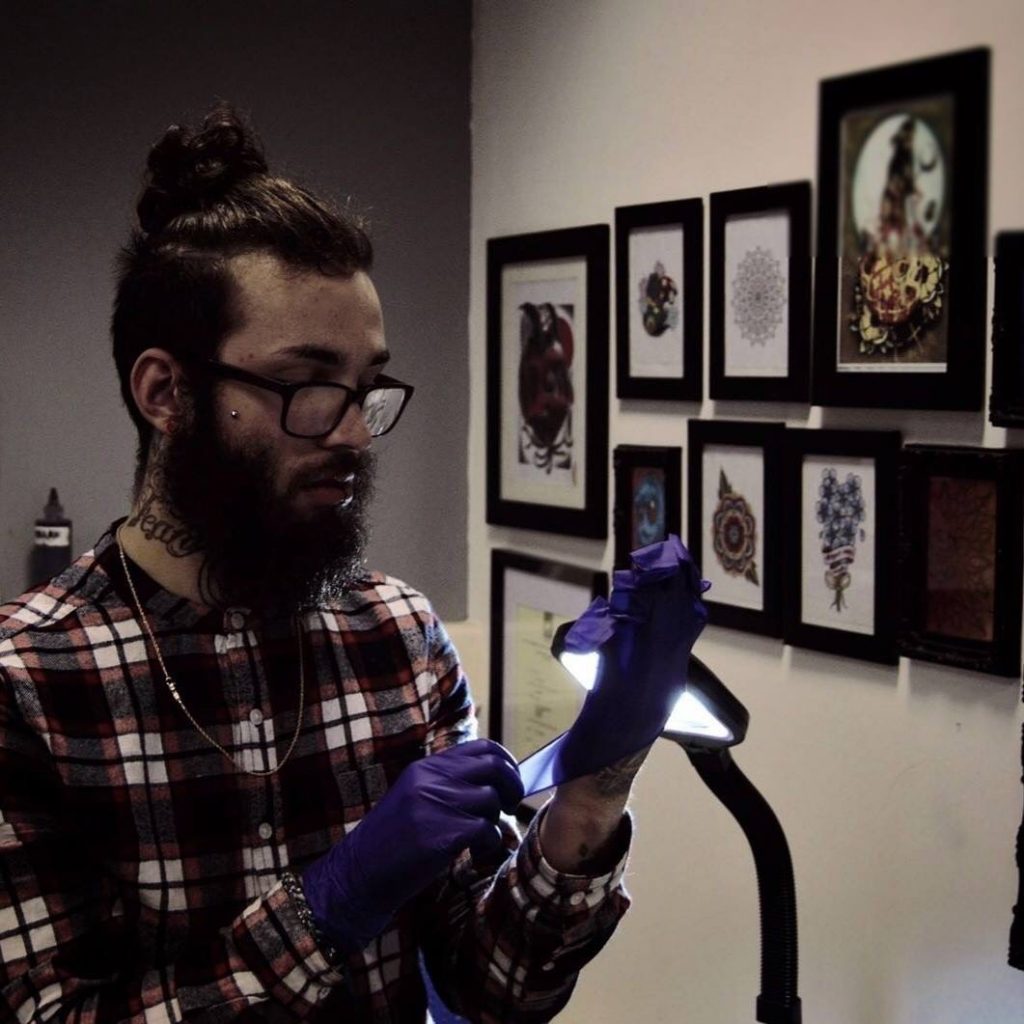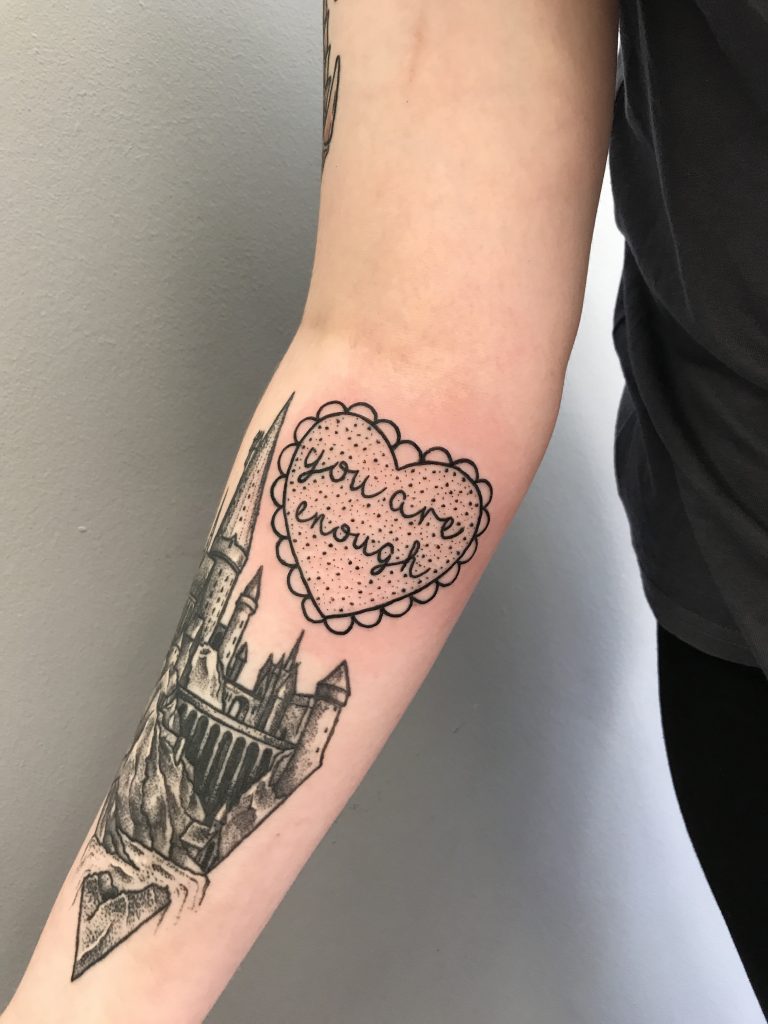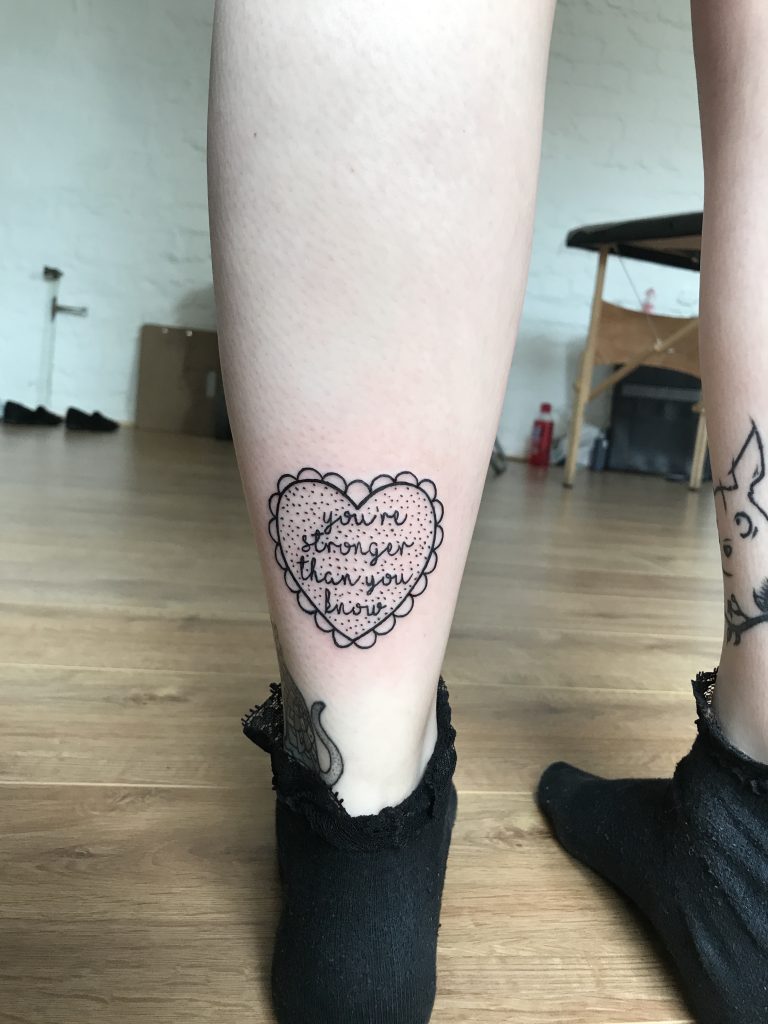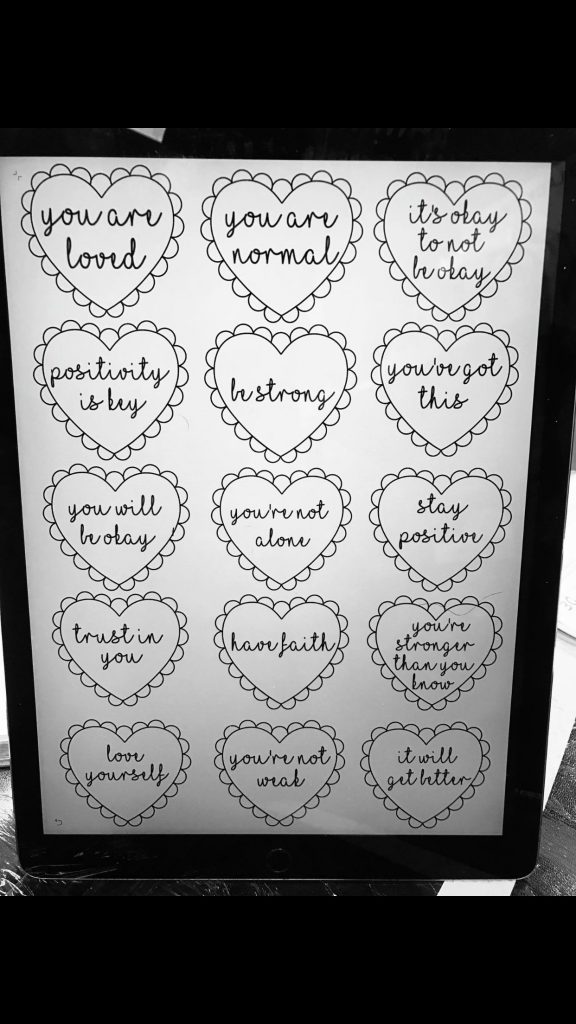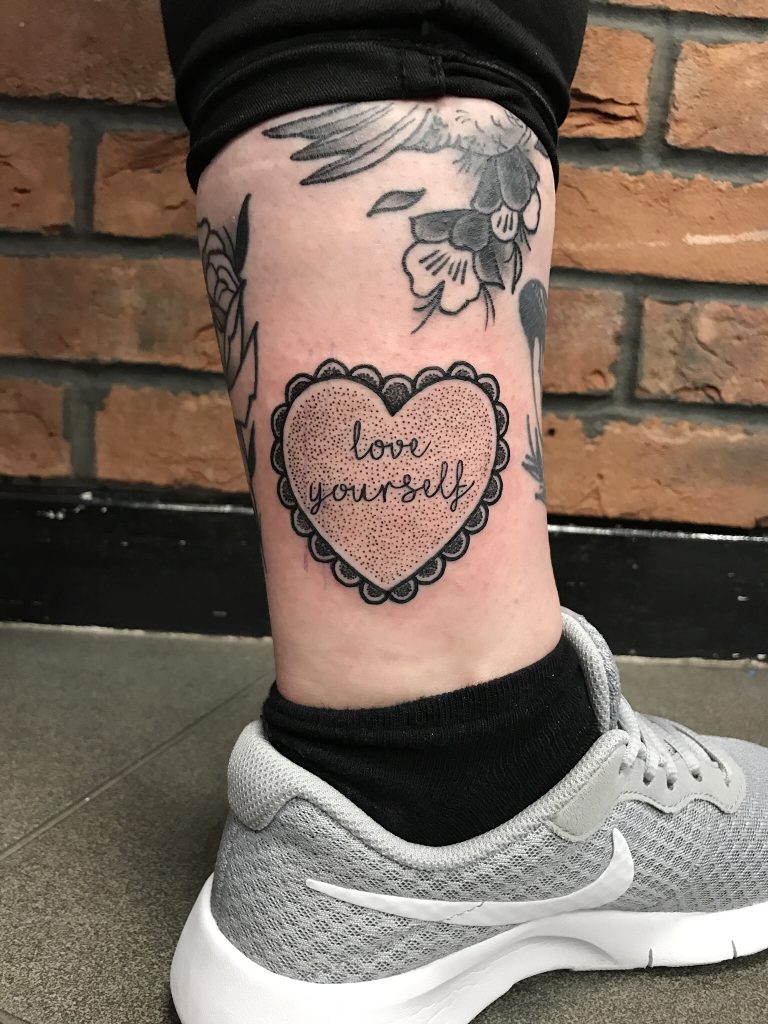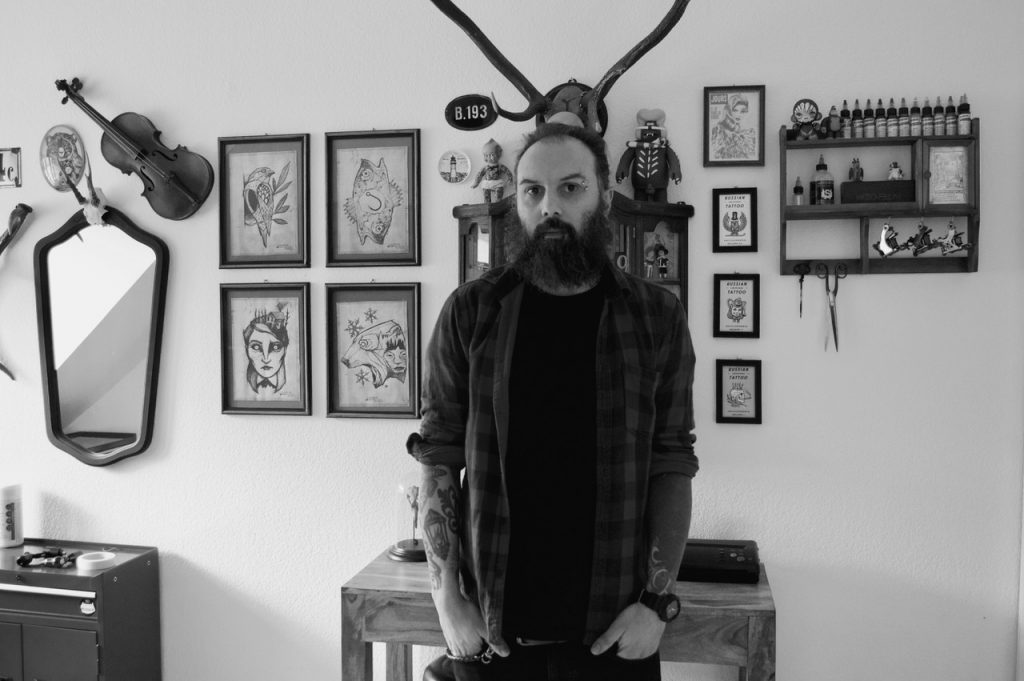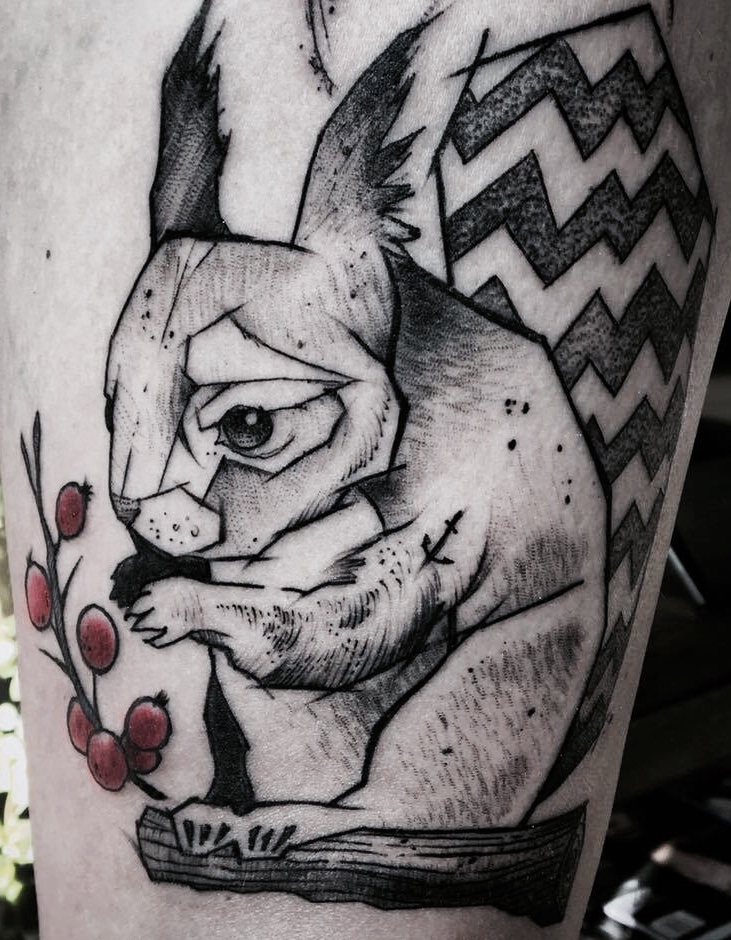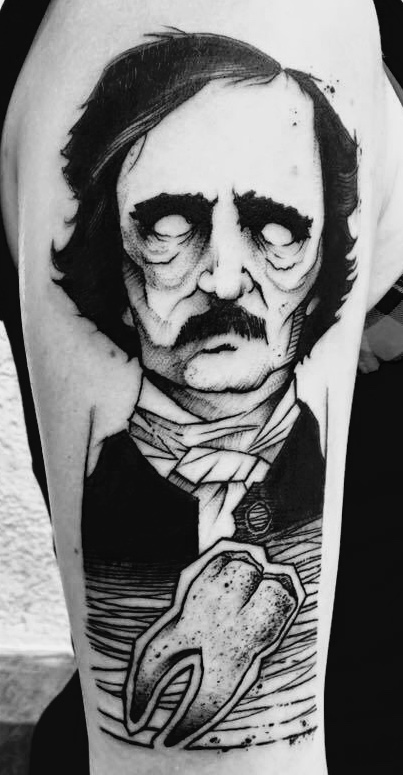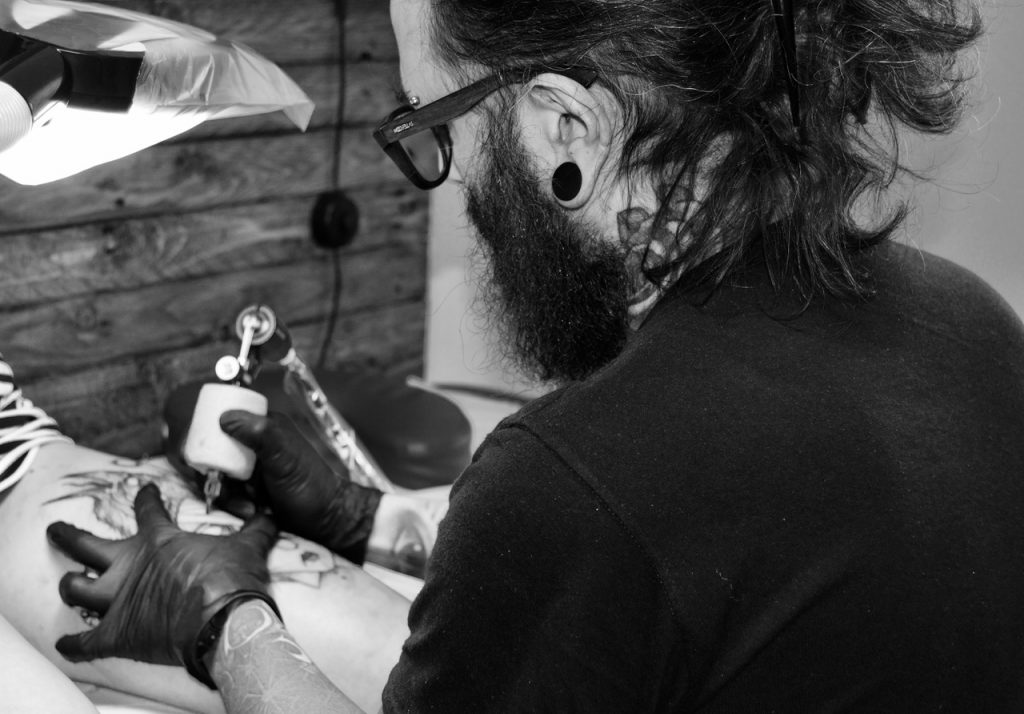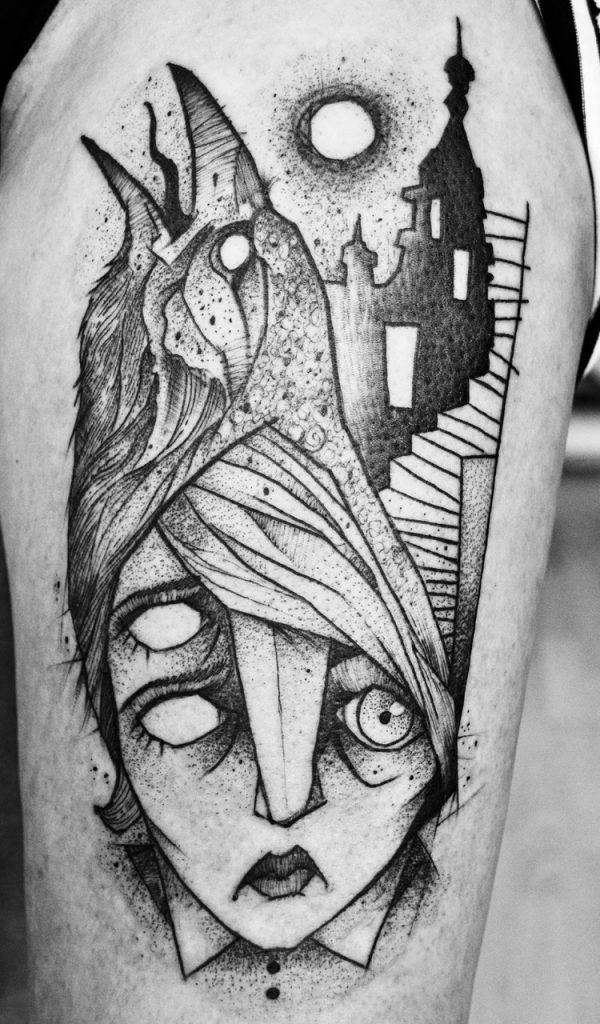25-year-old tattoo artist Charline Bataille, works at Minuit Dix in Montreal, where she creates bright, freaky, fluorescent, sometimes even ugly tattoos. We chat to Charline about her love for colour, her oversharing nature and the space she takes up in the tattoo industry…
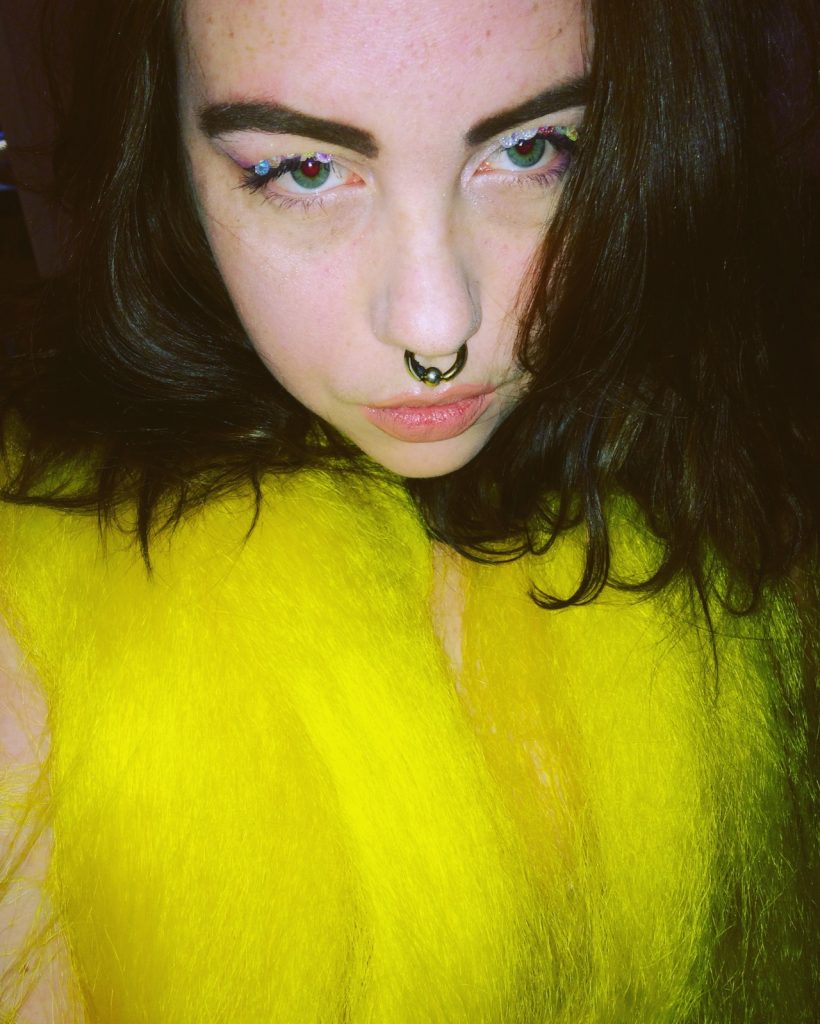
How long have you been tattooing, how did you start? I’ve been tattooing for less than two years! I’m a newbie! I started learning by myself and met with other queer tattooers to exchange knowledge and tattoos.
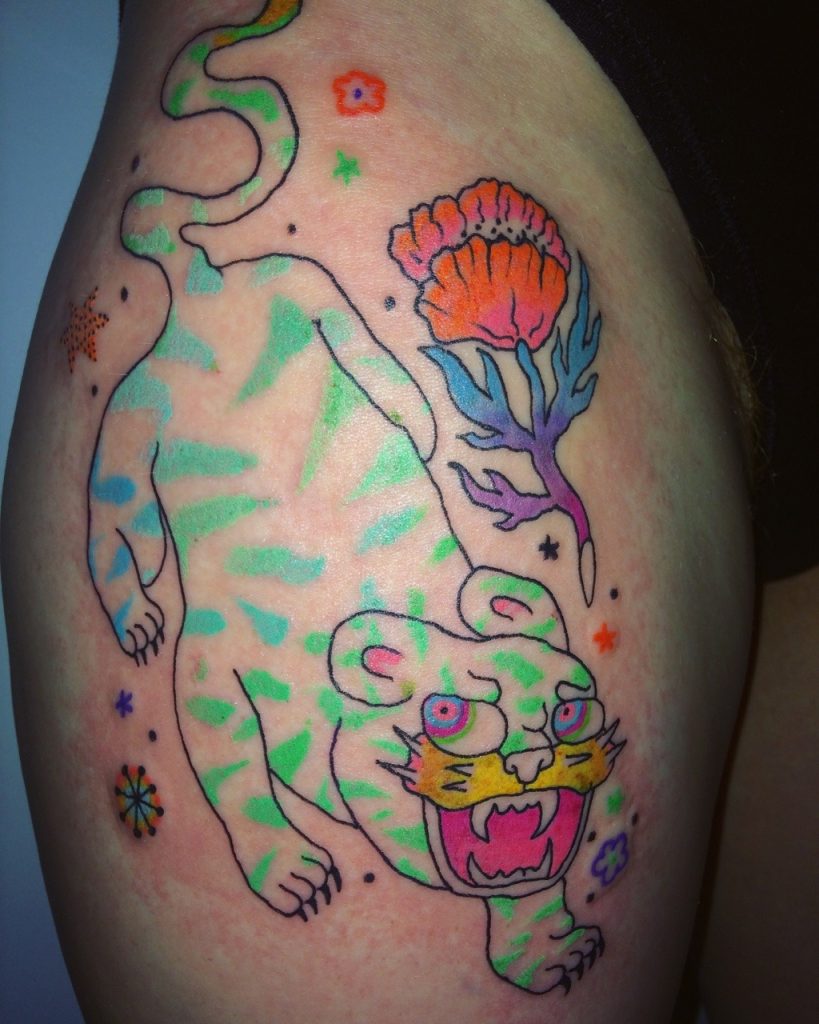
Can you describe your tattoo style? What sorts of things do you create? I think my style is very tender, vulnerable and emulates spontaneous drawings. I love to use colours! I love it everywhere – in my paintings, in my house, my make up, my clothes. I create weird impossible flowers, creepy cute animals and angry fat babes looking unapologetically hairy and hot! I love to tattoo a mix of cute and freaky! I like wonky lines and weird freaky colours, and I even like when my tattoos are ugly and disproportionate. I want to queer what tattoos look like. I know there isn’t only one way to tattoo and I want to break down the good/bad dichotomy! When I draw my tattoos, I always collaborate with my client. To me, their agency is very important.
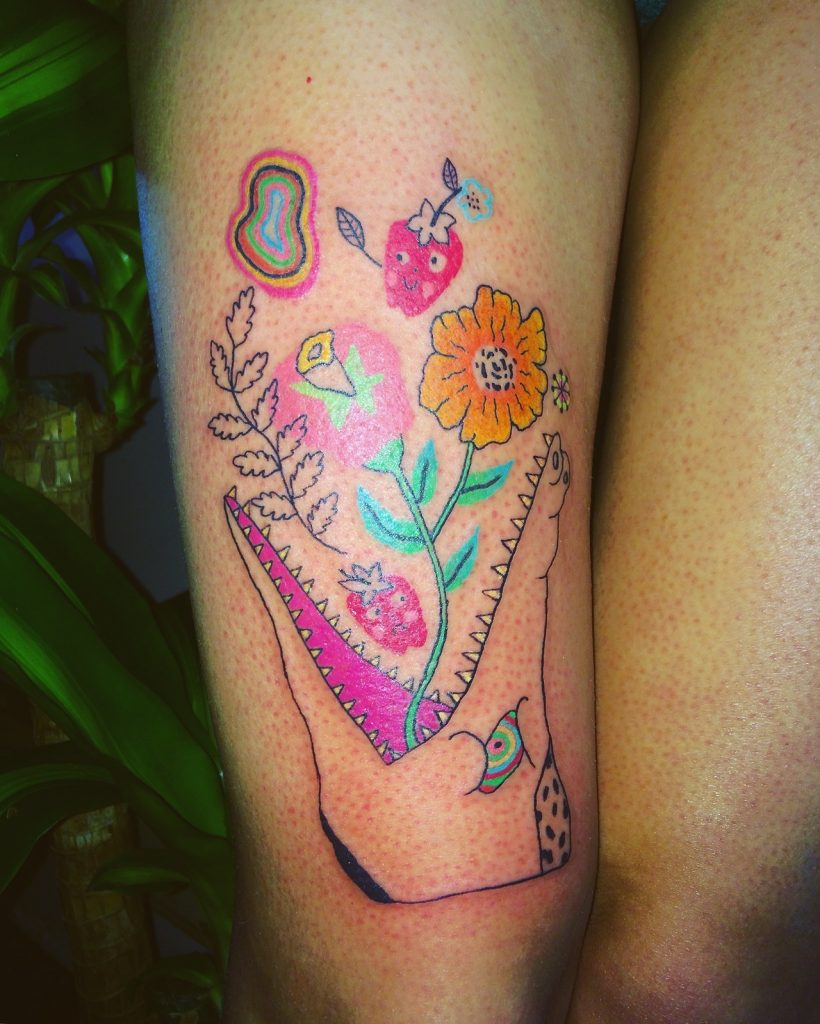
How do you feel as a queer woman working in the tattoo industry? Have you been faced with obstacles or criticism? You mention on your Instagram that you try to create a safe space for your clients, how do you do this and why is it important? It’s strange to me that I have taken this role as outspoken feminist tattooer because I don’t feel I am any good at putting my ideas into words, I much prefer to use images! I mentioned in an interview that a lot of people couldn’t have access to the tattoo industry, because of systemic oppression, and therefore, will find ways to learn and create in safe spaces. In response to this interview, I got a lot of messages, a lot of them calling me a stupid cunt but also a lot of them respectfully disagreeing and pointing out the danger of tattooing at home without proper knowledge. I don’t think I need to explain how apprenticeships and traditions are considered sacred and are needed. So I made a lot of people angry suggesting that it is possible to break tradition safely and that, in a general way, misogyny, fatphobia, cissexism and racism were too present in tattoo shops and made those spaces at best unpleasant and at worst unsafe for a lot of people.
First, there is way too little conversation about cultural appropriation in western tattooing. White tattooers still tattoo colonial imagery and sexual caricature of indigenous women on other white people. They don’t understand how important it is that tattooing didn’t originate in the western world. Consent forms in tattoo shops still force people to disclose their HIV statuses and even refuse services on that basis. It is illegal, intrusive, discriminatory and potentially dangerous to force HIV disclosure. If tattooers would take the time to reach out to their local organisation for and by people with HIV, they could offer a much fairer and safer service.
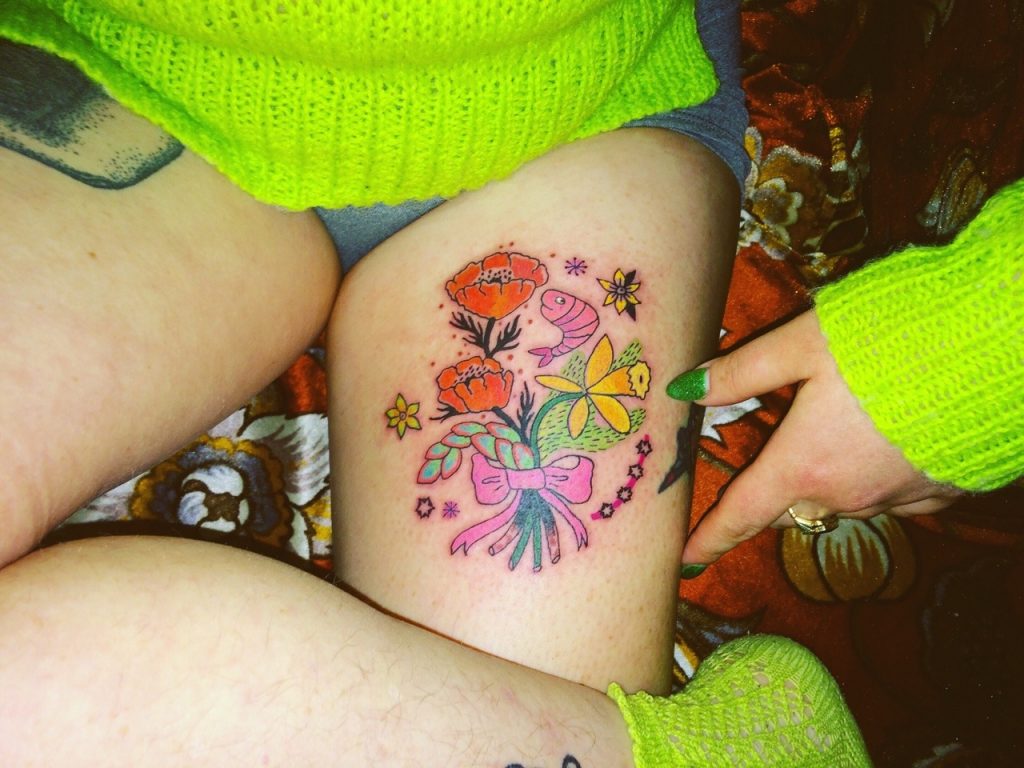
I tattoo almost only queer and trans people and a lot of them are women. Every one of my clients has a horror story to tell; from a tattooer telling a fat woman that he didn’t understand why she would want a tattoo on her hip, to tattooers telling brown people their skin is too dark, to blatant racism or sexual harassment. I have often been horrified and heart broken hearing their experience. Being queer and tattooing mostly queer and trans people, I know that there is a really complicated relationship with the body that makes those obstacles even more meaningful. Our body is a place where it is hard to claim ownership, it’s also a place that is described as “wrong” or “bad” by science and cissexist society. It takes constant work to take back control over your body and I know tattooing is one medium to achieve that. It’s really important to respect people’s pronoun, to discuss boundaries and to respect their bodily autonomy and to be tender and present when they trust you with their body.
I think there is room for the tattoo practice and community to be tender, vulnerable and sensitive. I’ve never been in a tattoo shop where I felt comfortable until Minuit Dix! A queer owned tattoo shop that supports queer / women/ trans / poc owned companies and individuals. That is conscious of safe practices, reducing waste, uses vegan ink, gender neutral consent forms that do not force or shame HIV disclosure, in a WHEEL CHAIR ACCESSIBLE space. Working there has really made it possible for me to offer a nice and cosy space for my clients to get tattooed. It is also a space where I can be a queer femme with mental illness and have my workspace respect my limitations and honour my identity. I am working next to @katakankabin and @cammy06 and I have learned so much from @murieldemai_tattoo. I am so lucky.
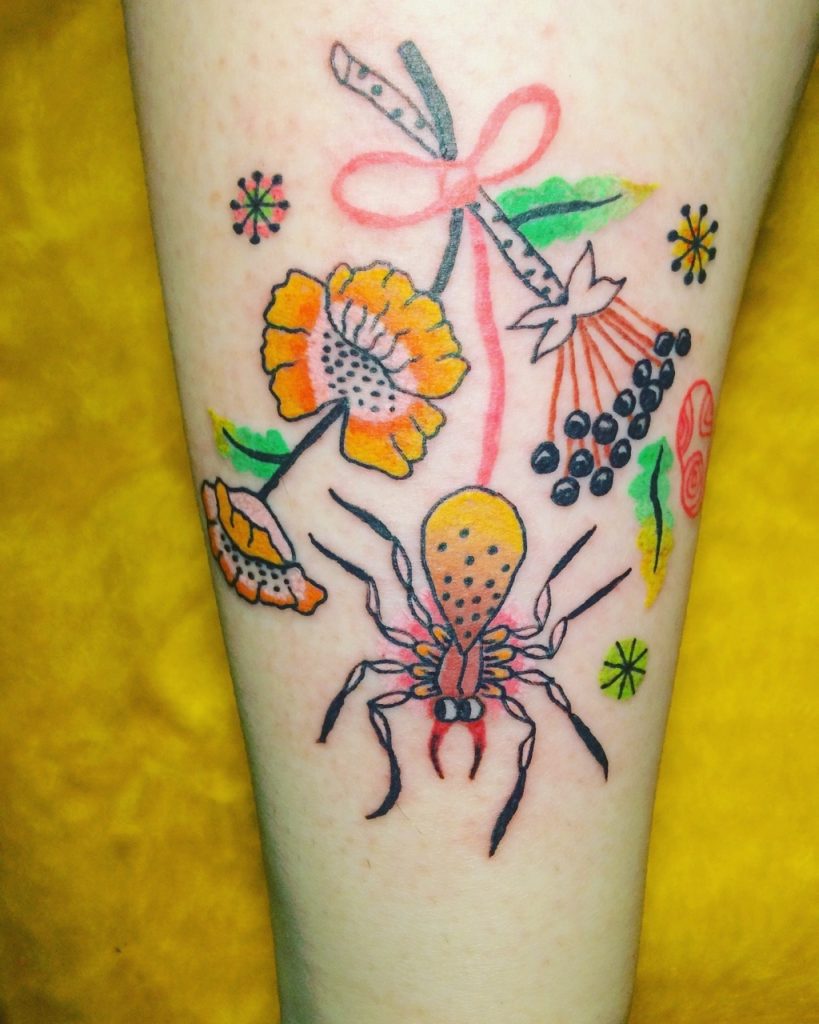
It says on your Instagram that you are an oversharer, what do you mean by this? I describe myself as a “over sharing queer femme” on my profile because I don’t draw a line between my professional life and my personal life or my activism. I don’t draw a line between my tattoo practice and my overall art practice, to me, all of this is one! On my Instagram (my only platform to share my tattoos and art) I often talk about my mental illness, my medication, my body image, my sexual trauma, my asexuality, my love life, what makes me sad and what makes me proud.
I do it because it helps me, because I love people to be able to relate and be reminded that I am far from alone, but I also love to see that it helps people working through their own trauma and experiences and feel like the stigma is possible to overcome. I am very sensitive and I have no filter! I think this part of me also makes me a better tattooer. It’s my way of telling people that they can also be themselves and I will be real with them at any moment.
